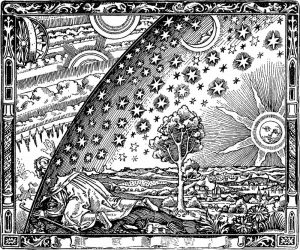Well, that’s fair. And not nearly as bad as I feared.
To be honest this was my baseline expectation as far as outcomes for this contest. Though I’ve seen readers of Ryswyck use the word “fantasy” in describing it, it really doesn’t have any of the classic features of fantasy: no magic; no talking animals; the spirituality of the book rises to mysticism in places but not so as to confer, say, Jedi powers or anything.

On the other hand, it doesn’t really have many of those classic sci-fi features either: no space opera, no interesting technology, no aliens — its futurism is almost entirely parabolic. After I entered SPFBO I saw where Hugh Howey was starting up a similar contest for the sci-fi side of things. Watch me enter Ryswyck in that and have someone say it’s not really science fiction. I’m having a genuine laugh imagining that. God, am I glad I didn’t start publishing books till my 40s — I’m continually charmed by my own poverty of fucks to give.
My impression, too, is that people are way more inflexible about science fiction bright lines than fantasy ones. I have tagged Ryswyck as sci-fi in digital marketplaces before but steadfastly describe it as “speculative” in my own venues lest I run into some Heinlein aficionado or similar who wants to start an argument. They’d be disappointed!
There’s an irony in this because although I’ve written a book that appears to straddle genres, I made no attempt whatsoever to be “original,” God help us all. Secondary-world speculative fiction is plentiful, and a lot of it is built with Eurocentric analogues. It gets shelved in all sorts of sections. No, what I cared about when building Ryswyck was not genre features but tropes. I put in all my favorite tropes and the proverbial kitchen sink, and let’s be real, my primary motivation for writing The Lantern Tower is that there are some favorite tropes I missed.
As a former library paraprofessional I get why we have bright lines for genre boundaries; you have to if you’re going to bother having genres at all. People like having the stuff they want conveniently sorted onto one shelving range. As librarians say, a mis-shelved book is a lost book. So, in another way, is a misidentified one. But the convenience can outlive its usefulness and diminish when boundaries proliferate and grow rigid. Still, it’s better to have one’s book be debatably one genre or another than to have it tossed into the literary fiction section where there is 99.44% weeping and gnashing of teeth.
So, you know — it could be worse.
